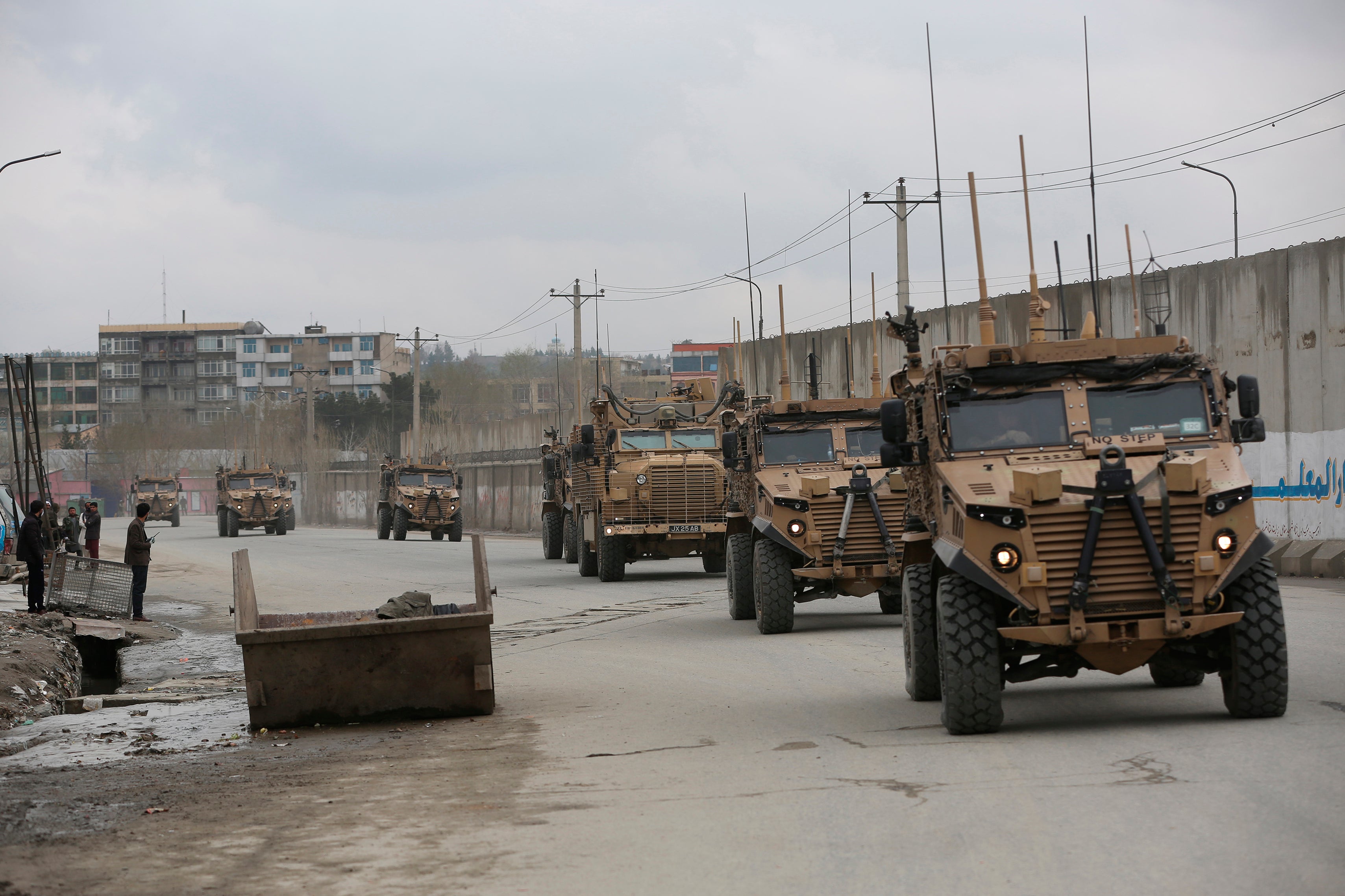UK to send up to 600 troops to Afghanistan to help evacuate Britons as Taliban closes in on Kabul
Move to airlift British nationals and Afghans given refuge in UK comes amid more Taliban advances

Your support helps us to tell the story
From reproductive rights to climate change to Big Tech, The Independent is on the ground when the story is developing. Whether it's investigating the financials of Elon Musk's pro-Trump PAC or producing our latest documentary, 'The A Word', which shines a light on the American women fighting for reproductive rights, we know how important it is to parse out the facts from the messaging.
At such a critical moment in US history, we need reporters on the ground. Your donation allows us to keep sending journalists to speak to both sides of the story.
The Independent is trusted by Americans across the entire political spectrum. And unlike many other quality news outlets, we choose not to lock Americans out of our reporting and analysis with paywalls. We believe quality journalism should be available to everyone, paid for by those who can afford it.
Your support makes all the difference.The UK is sending around 600 troops to Afghanistan to carry out an emergency airlift of civilians, as the Taliban closes in on the capital Kabul after seizing several key cities in the last week.
Most embassy staff, other British nationals, and Afghans who have been given refuge in Britain, are among several thousand people who will be evacuated to the UK in an operation that commences at weekend and is expected to be completed by the end of the month.
The British embassy – already in the heavily fortified ‘green zone’ – will be moved to a more secure location, with the ambassador, Sir Laurie Bristow, staying on with a skeleton staff.
The British government insisted that the evacuation and its timing has been long planned. But Afghan officials said the operation was brought forward as the security situation rapidly deteriorated.
The Taliban strengthened their grip on the country by capturing the symbolic and strategic prize of Herat on Thursday, while reports suggested it had also taken Kandahar – Afghanistan’s second largest city.
The UK evacuation force will be led by by a senior officer from 16 Air Assault Brigade which spearheads military operations and supervised by the Joint Force Headquarters. The unit will comprise of paratroopers, medics, logisticians . The force will start to deploy by the end of the week.
The US administration urged American citizens to leave Afghanistan immediately, using commercial flights. The embassy offered help to citizens unable to leave immediately for financial or other reasons but warned “given the security conditions and reduced staffing, the Embassy’s ability to assist US citizens in Afghanistan is extremely limited even within Kabul”.
The British troops will provide “force protection” – armed support for the “acceleration of the Afghan Relocation and Assistance Policy (ARAP)” under which interpreters and other Afghans who worked with the military are being flown to the UK.
The British force will not engage in combat alongside Afghan government troops against the insurgents, and senior military officers said they hoped that the Taliban would not interfere with the mission as it is hastening the end of foreign presence in Afghanistan.
The plan currently is to use charter aircraft for the evacuation using Kabul airport which is still open with commercial airliners flying. Military aircraft will be used however if that becomes impossible, with planes put on standby.
The evacuation is another grim reminder of the failure of the Doha Agreement, backed by Britain, under which US-led international forces withdrew from Afghanistan in haste with the Taliban allegedly willing to end violence and join the political process.
Instead the Islamists launched a military campaign inflicting brutality in some of the areas they occupied.
Ben Wallace, the defence secretary, said: “I have authorised the deployment of additional military personnel to support the diplomatic presence in Kabul, assist British nationals to leave the country and support the relocation of former Afghan staff who risked their lives serving alongside us.
“The security of British nationals, British military personnel and former Afghan staff is our first priority. We must do everything we can to ensure their safety.”
The Ministry of Defence in London maintained “the UK remains committed to Afghanistan and will continue working as part of the international coalition to support the country’s government through our diplomacy, development and counter terrorism work. This year the UK will provide Afghanistan with more than £100m of support to improve critical health and education services.”
Many products of international aid, especially girls’ schools and colleges, have been destroyed by the Talibs in areas under their control. Others have been abandoned by staff amid the ferocious violence of the conflict and fear of the jihadists.
Join our commenting forum
Join thought-provoking conversations, follow other Independent readers and see their replies
Comments